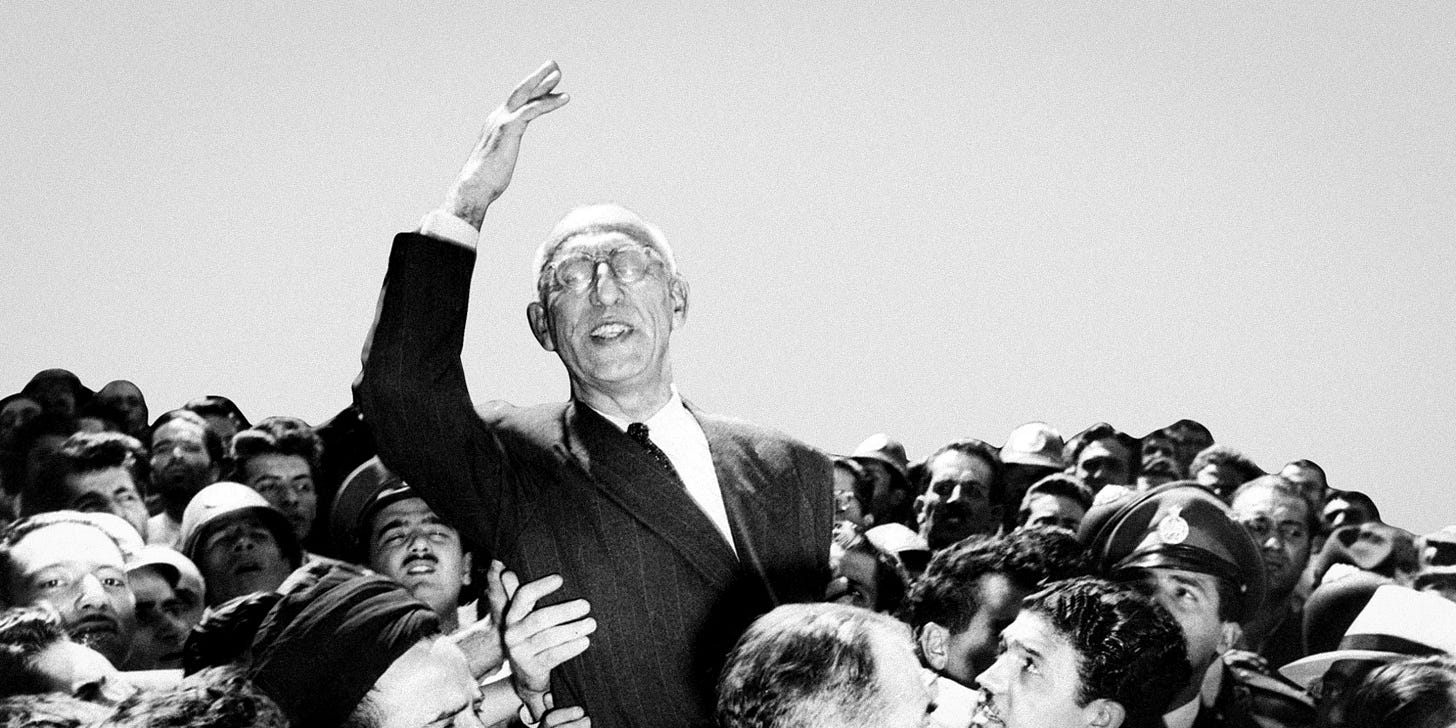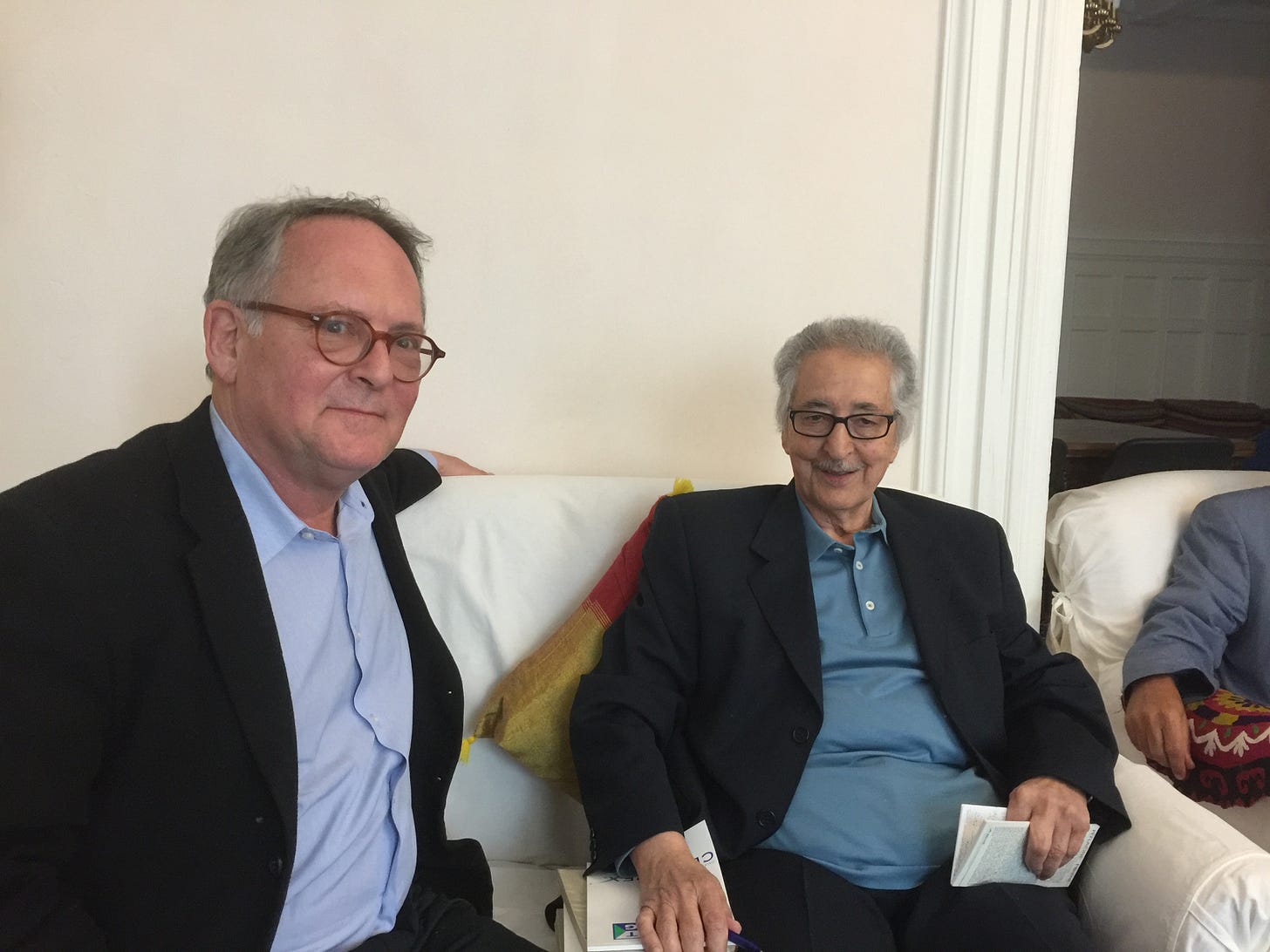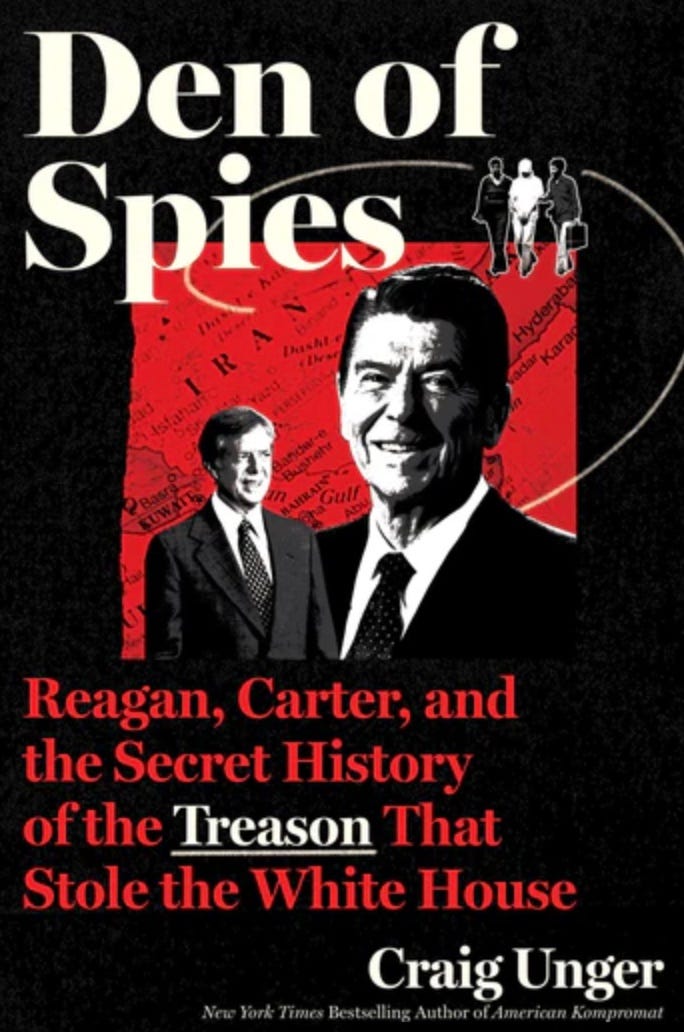The Iran Question: Is the US responsible for putting Iranian fundamentalists in power?
Ever wonder why the U.S. often supports the bad guys? Now that Iran is back in play, it's worth having a second look at the events of the coup of 1953 and the Embassy takeover in 1979.

As President Trump threatens to go to war with Iran, it’s worth asking how such a repressive fundamentalist regime took hold in a country that had been a stable secular democracy. Until the United States intervened, that is. There are two parts to the story—and both show how America has played an essential role in pumping up the militant Islamic fundamentalism we decry and installing their leaders in power.
The first part, much of which has been widely told, concerns the 1953 overthrow by the CIA of Iranian prime minister Mohammad Mossadegh, a secular social democrat who had been a principal figure in bringing about the end of 150 years of British interference and plundering of Iran’s national resources.
As I wrote in my latest book, Den of Spies:
To achieve that goal[of nationalizing Iran’s oil industry], [Mossadegh] first tried to renegotiate a new agreement with the Anglo-Iranian Oil Company(now known as BP or British Petroleum). When that hit a dead end, Mossadegh then resolved that he had no choice but to commit the unpardonable sin of nationalizing Iran’s vast oil industry. “This was the first time that anyone in the Middle East had ever done anything against imperial powers, colonial powers,” said Barry Rosen, a press attaché at the US embassy in the seventies, and later one of the hostages.”
BP, the United Kingdom, and the United States were stunned that Iran had the temerity to seize control of its own natural resources, and they were determined to put a stop to it. What happened next was a coup d’état code named Operation Ajax, led by the CIA’s Kermit Roosevelt, Jr.
The story behind Ajax has been told in All the Shah’s Men by Stephen Kinzer and The Coup by Ervand Abrahamian, and other books. But a key lesson that is often lost in the telling is that in order to execute the coup, Kermit Roosevelt had to enlist the help of Iran’s fundamentalist clerics to crush Iran’s secular opposition. Roosevelt even made a $10,000 payoff to Ayatollah Abulqasim Kashani, a hardline fundamentalist who had initially supported Mossadegh, but ended up organizing the mobs that overthrew him.
The bottom line was that in order to make sure the West controlled Iran’s oil, the CIA helped destroy secular democracy in Iran and replaced it with Shah Reza Pahlavi’s brutal, repressive monarchy. With that, democracy in Iran was dead forever—or at least the next 72 years.
The second part of the story took place in the immediate aftermath of the 1979 Islamic Revolution that deposed the Shah of Iran. It concerns the October Surprise of 1980, that is, the treasonous covert operation orchestrated by Reagan-Bush campaign manager Bill Casey after Iran captured 52 American hostages and incarcerated them in the American Embassy in Tehran.

The October Surprise has been enormously controversial for decades—though I believe Den of Spies shows definitively how Casey put together a network of arms dealers and intelligence operatives to meet with representatives of the newly formed Islamic Republic of Iran and make the deal. The deal was illegal and treasonous not just because President Carter had sanctioned the sale arms to Iran in the aftermath of hostage taking. It was also illegal because Casey and the Republicans were not in office and therefore were prohibited from hijacking America’s foreign policy.

When I interviewed him in 2016, Abolhassan Bani-Sadr, the exiled Iranian president who had been in office during the hostage crisis, made clear a major consideration that is few Americans have noted: The forces that overthrew the Shah consisted of both Islamic fundamentalists and secular democrats, and the Republicans had sided with the former.
When they had been in France, before returning to Tehran, Bani-Sadr had assembled a list of twenty basic principles that were essential to building a secular democracy in Iran, and Khomeini seemed to approve of them. That was not surprising as they had a long term father-son relationship in which Khomeini himself said that Bani-Sadr was “like a son to me.”
On January 25, 1980, with Khomeini’s support, Bani-Sadr won the presidency, overwhelmingly, with 76 percent of the vote—a margin that was highly misleading in terms of his fragile hold on power, not to mention Khomeini’s support for him..
In fact, as soon as Khomeini saw millions cheering him in the streets, he changed. “When we got to Iran, he immediately showed signs that he was not going to hold to those principles,” Bani-Sadr told me.
Instead of a secular democracy, Khomeini was putting together an Islamist theocracy.
As I explained in Den of Spies:
….[A]s a covert operation, the October Surprise was a twofer: Both Carter and Bani-Sadr were being undermined from within. In effect, team Casey in the United States and the Islamic Republican Party were working together to make sure Ronald Reagan beat Carter in the US election. Their deal also had the effect of solidifying Ayatollah Khomeini’s position as the ruler of Iran and eliminating the pesky irritants of Bani-Sadr and secular democracy. When I interviewed him in Versailles, Bani-Sadr described what transpired as “a creeping coup,” in which, bit by bit, Khomeini and his followers robbed Bani-Sadr of his dwindling presidential powers. The very same Republican hardliners who so decried militant Islamism were doing everything in their power to make certain that a brutal, repressive, Islamist theocracy was securely installed in Iran.
Before long, Bani-Sadr, said he heard stories about Khomeini’s representatives secretly meeting with Republicans about a deal to delay the release of the hostages. “That was a very dirty thing to do—using the hostages as a weapon to help Reagan win the election,” Bani-Sadr said. “And I told [a relative of Khomeini’s] the outcome could be the election of Ronald Reagan, which would be a disaster for Iran and for the rest of the world. I told him we can’t negotiate with them. The Democrats are in power. And if we made a deal with [the Republicans], it would help Reagan’s chances, which would be terrible for Iran.”
Indeed. And as a result, Iran has endured a repressive, Islamist theocracy for more than 45 years.
For the complete story of the October Surprise, read my latest book, Den of Spies.
“What if the scariest political thriller you ever read were a true story?...After decades of investigation, [Unger’s] finally collected all the receipts and laid them out for the world to see. He brings a stunning amount of research to the table, but he also constructs his narrative like an expert thriller. This perversion of justice will chill you, especially because it still resonates today.” — Apple Books, Monthly Staff Pick
“Craig Unger’s latest investigative book, Den of Spies, is important, and not only for its dogged detailing of what one can now reasonably conclude was the stealing of the 1980 presidential election by Republican Ronald Reagan’s campaign team…Does he make the case? I think he does—because he has the receipts.” — SpyTalk
Reagan, Carter, and the Secret History of the Treason That Stole the White House







Thanks. It’s a great book.
I've been re-reading Den of Spies instead of Blueskies and just thought I'd take a peek at what posting you might be doing and Voila! So is trump thinking now is his chance to "take the oil"? The U.S. has always played duplicitous roles in it's entire history, thus it's not only trump's motivations in these tangled webs we weave. Thank-you for putting in so much time and for sharing the information as well. BTW to anyone interested Den of Spies is so well written as to be `a le Carré.